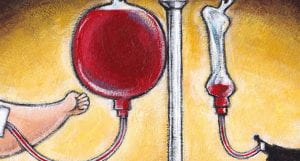Published September 27, 2017 in The Hill
Linda Gorman, director of the Independence Institute’s Health Care Policy Center, recently argued on these pages for a repeal of ObamaCare. Gorman claims that the movement toward a more European-style health care system, such as Obamacare steers us toward, leads us in the wrong direction. For support, she compares our health care system with Switzerland’s.
recently argued on these pages for a repeal of ObamaCare. Gorman claims that the movement toward a more European-style health care system, such as Obamacare steers us toward, leads us in the wrong direction. For support, she compares our health care system with Switzerland’s.
I’ll address that comparison toward the end of this article. Before getting there, though, I want to engage Gorman’s broader argument, both because it draws for support on my research comparing health care financing in the US with other countries, and because it misses basic health care economics.
To tackle the essence of Gorman’s argument that Americans are better off with a health care system leaving some uninsured, let’s step back from the specifics of Switzerland’s health care system. Let’s instead examine the “European (or Asian)” model of health care. Continue reading

 Last year, King County sought to improve turnout by increasing the number of its drop boxes from 10 to 43. In the words of King County’s Director of Elections Julie Wise, the purpose was to “make it as easy as possible to exercise the right to vote.”
Last year, King County sought to improve turnout by increasing the number of its drop boxes from 10 to 43. In the words of King County’s Director of Elections Julie Wise, the purpose was to “make it as easy as possible to exercise the right to vote.”


